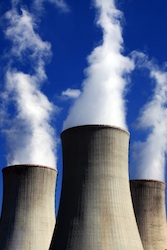U.S., Pakistan Talking about Civilian Nuclear Deal
March 23, 2010
Featured Image
We are happy to serve you a daily summary of the day's top nuclear policy stories each morning, with excerpts from the stories in bullet form.
Stories we're following today:
Pakistan Pushes US for Nuclear Technology Deal - The Guardian [link]
- Pakistan wants the US to provide it with nuclear technology for a civilian energy programme and is to push the Obama administration this week for a deal.
- Islamabad seeks a civilian nuclear deal to mirror the package granted to India by George Bush, a proposal that would prove contentious in Washington, given Pakistan's uneven record on combating extremist groups and its sale of nuclear technology to states hostile to the west, led by the former head of its programme, Dr Abdul Qadeer Khan.
- A team led by Pakistan's foreign minister that includes the country's army commander and spy chief is due to arrive in Washington on Wednesday for meetings with their US counterparts, including Hillary Clinton, the secretary of state, in an effort to relaunch dialogue between the two allies. Afghanistan and help for Pakistan's near-bankrupt economy will also be on the agenda.
- Many experts believe Pakistan holds the key to stabilising Afghanistan and it is trying to position itself as a sole conduit to talk to the Taliban.
- A civilian nuclear deal, which would provide technology and fuel for power plants, could be the carrot required for Pakistan to finally cut its ties to jihad groups. A variety of incentives since 2001, including military equipment and civilian aid, have not worked, say experts.
Russian Diplomat Sees U.S. Arms Pact in Days - Reuters [link]
- Russian and U.S. negotiators could finalize a landmark new nuclear arms pact within days, Russian officials said on Monday.
- But Russia's top general, while predicting the treaty could be signed in early April, suggested the nations are at odds over how it should handle the divisive issue of missile defense.
Foreign Leaders Face an Empowered Obama - Laura Rozen in Politico [link]
- After Obama's historic health care victory, foreign leaders face an empowered American president, from Israel's Benjamin Netanyahu to Russia on START.
- Netanyahu’s aides have recently confided that they see Obama as a weak leader whose tenure they can weather, but that calculus may now have to change. After his health care victory, says former Rep. Robert Wexler (D-Fla.), “the president is now a much stronger president, and that will play out in a variety of ways in the Middle East, and also in his direct relations with the leaders in the region, especially Prime Minister Netanyahu.”
A Mushroom Cloud, Recollected - Jeremy Bernstein in The New York Review of Books Blog [link]
- With the renewed interest in nuclear weapons I have been struck by how few people there still are who have seen one explode. ... In the main, this is a very good thing: the fallout from such a test is a real health hazard. But there is a downside. We have lost the experience of watching a nuclear explosion—perhaps the most powerful lesson about nuclear bombs there is.
- What I saw defies description. At first there was no noise. Then came the shock wave that made a disagreeable click in my ears and finally the rolling thunder of the noise. The Joshua trees were aflame as if in some obscene pagan rite. The bomb had evaporated the tower. The fire ball rose and above it was a dark and very menacing radioactive column. It seemed to come towards us and I wondered if we should seek shelter. Above it was the mushroom cloud.
- I know how it affected me. I was never quite the same. I cannot think of nuclear weapons as an abstraction. I listen to debates on nuclear proliferation and wonder if these people really understand what they are debating.



